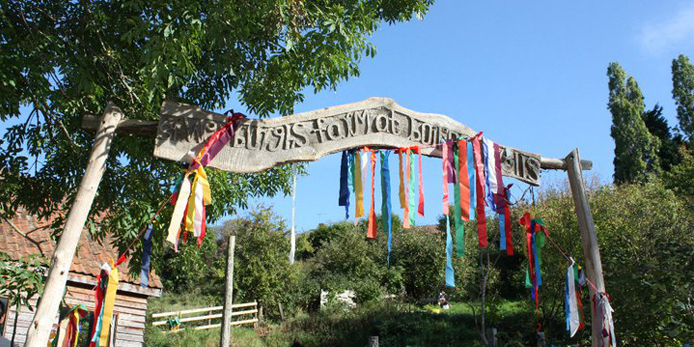Families in the Wild (bi annual 2 day event)
Working with Bristol’s Child and Adolescent Mental Health Service (CAMHS) in the natural environment to enhance family relationships
Due to the sensitive nature of the children involved we are unable to show pictures from the project.

This Ecotherapy project is a partnership between Imayla, North Bristol NHS Trust CAMHS and St Werburgh’s City Farm.
Families attend CAMHS because one or more of their children has a complex, severe and enduring mental health difficulty. ‘Families in the Wild’ offers the opportunity to take part in a range of creative and outdoor activities as individuals and with their family. The aim is to improve the child’s mental health and wellbeing and to build relationships between family members and with support staff from the CAMHS service.
Parent and support workers reported positive changes in the behaviour of the children, in their ability to learn new skills and in their self-esteem and confidence:
‘Everything he has done, all the activities and challenges, he’s done himself and he’s enjoyed doing them himself and taking part. He hasn’t sat by and watched (sibling) enjoy it, like he normally does.’ (Adoptive parent)
'We observed children who frequently have educational difficulties and find it hard to concentrate in a classroom setting and/or at home were persisting with learning new skills and remaining focussed for long stretches of time.' (CAMHS staff)
‘A breath of fresh air…it took us all out of ourselves to the point that when I got home I burst into tears, because for once it wasn’t him screaming and hurting and breaking things to being a child that’s actually quite happy.’ (Parent)
‘Using tools and the fire allowed opportunities to model setting boundaries, managing risk safely and encouraging independence.’ (CAMHS staff)
'(Child) went from being this aggressive person he can often be to being this boy who is just sat there cooking bananas.' (Parent)
The experience built new relationships and trust within families and proved an opportunity for families to gain new ideas about what they could do together:
'The event was an opportunity for dad to come to the fore having a positive time with his children and enjoying the father role. He expressed determination to continue to improve relationships.' (CAMHS evaluation)
‘It doesn’t matter if you’re earning £13,000 or £30,000 or if you’re on the dole. At the end of the day the most pleasure is just going out and playing.’ (Father of adopted children)
And parents reported that they learnt a lot from staff and each other:
‘Nothing clicks better than these parents because they know. They’re living through what we are. They’ve given me advice and I’ve helped some of them as well.’
‘I am freeing up more time to try to understand his concerns, worries. Trying to be more patient.’
‘I’m seeing things more positively now.’
There was also the opportunity for CAMHS staff to develop and enjoy more informal and supportive relationships with families during the project:
‘All of these observations provided important information to inform our assessment and therapeutic work with the families and we wonder if it would be helpful to have this sort of opportunity as part of a ‘standard programme of assessment’ for services such as CAMHS.’